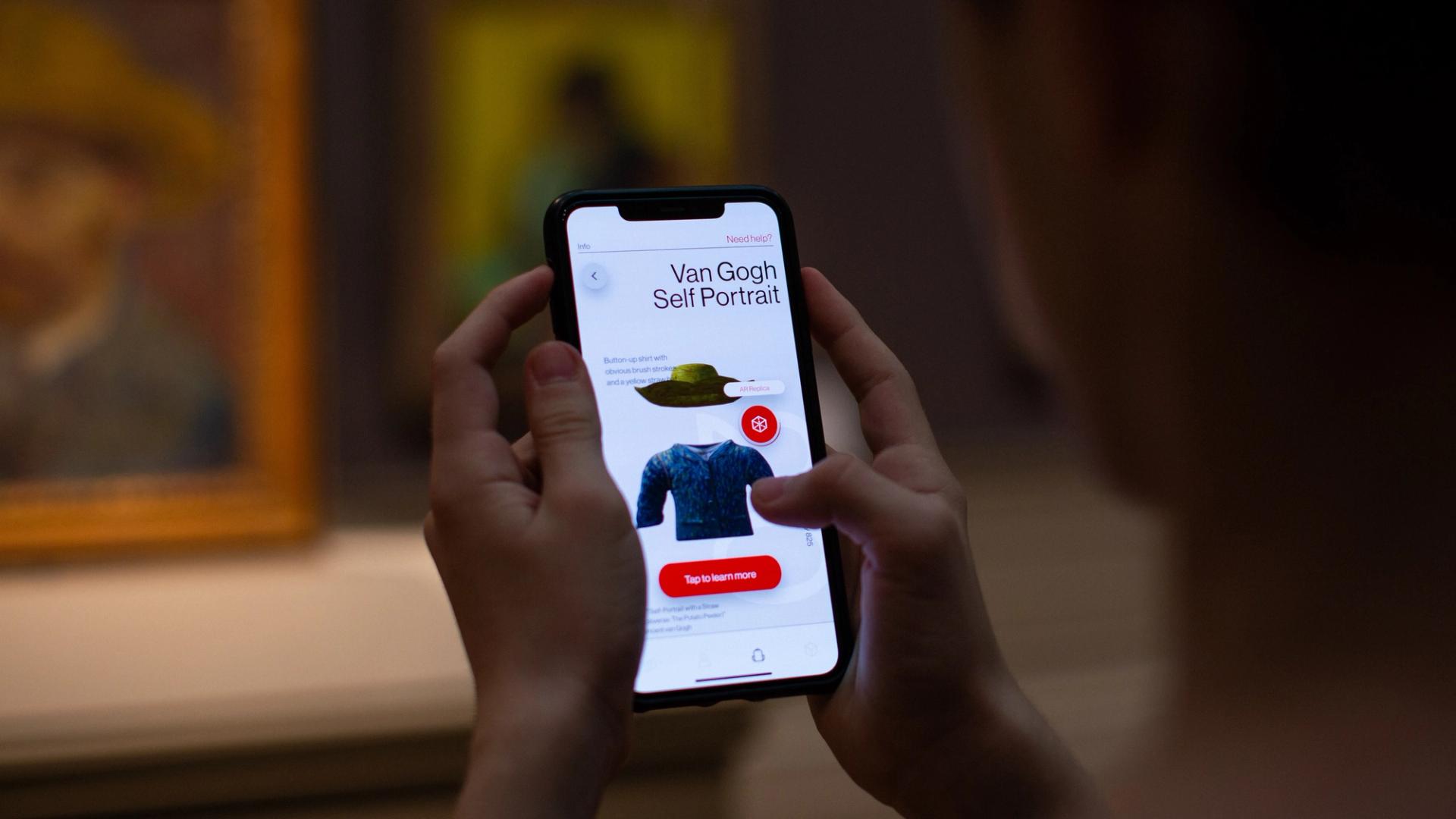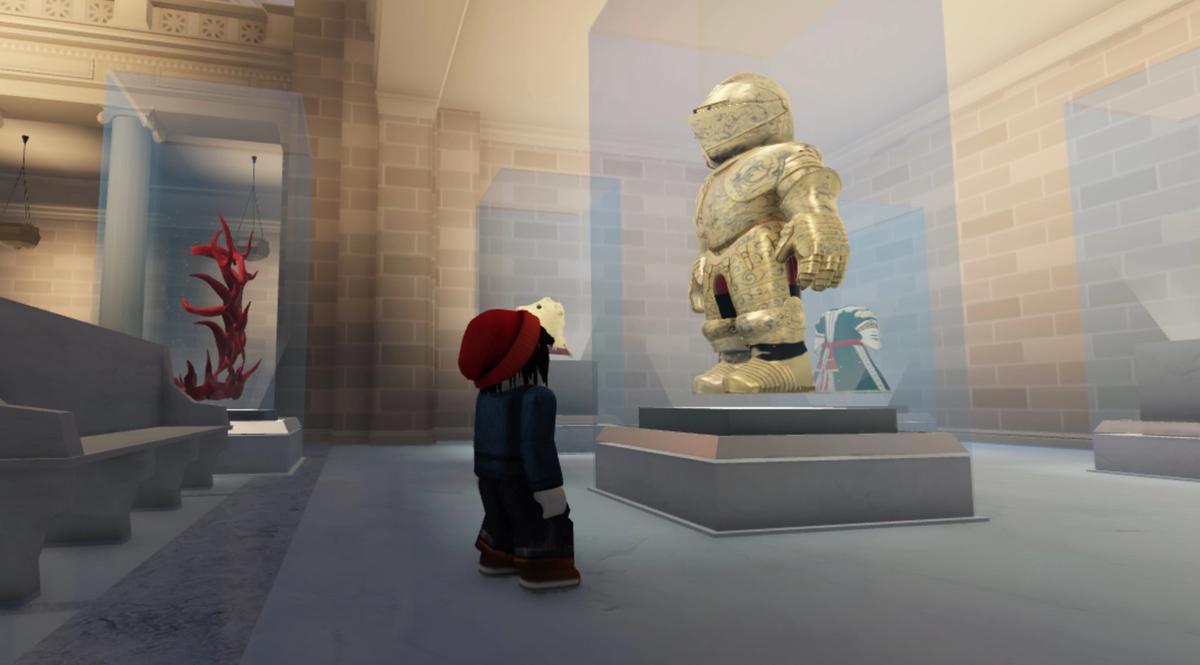The Metropolitan Museum of Art is edging closer to the metaverse in a bid to shake up the museum-going experience. The museum announced today that it has partnered with telecommunications company Verizon to launch Replica, a new app that allows users to engage with art from its collections in virtual space. The app can be used with Roblox, the popular gaming platform, where a new virtual version of the Met, including spaces like its Fifth Avenue façade and its Great Hall, can be explored.
Replica builds on the Met’s previous partnership with Verizon in 2021, a limited-run augmented-reality experience that provided remote access to a tight selection of its artworks. The new app, available for free on iOS and Android devices on 2 August, encourages in-person trips, inviting visitors to scan certain objects that can then be transferred to Roblox. Users are guided on a map, treasure-hunt style, to artwork such as Vincet van Gogh’s Self-Portrait with a Straw Hat (1887), Henry II’s suit of armour and the prominently placed Perseus with the Head of Medusa.
Designed for children and young adults, the app aims to present an immersive cultural and educational experience. It also marks the Met’s latest move to lure back visitors after seeing a major drop in attendance since the Covid-19 pandemic. According to The Art Newspaper’s 2022 Visitor Figures survey, the museum had 1.7 million fewer visitors last year than before the pandemic, or a 34% drop from nearly 4.9 million in 2019. Last summer, the Met also raised its admission prices across all tiers by $5, making the cost of a standard adult ticket $30 (entry for New Yorkers and students from the tristate area remains pay-as-you-wish).

A visitor to the Metropolitan Museum scans Vincent van Gogh's Self-Portrait with a Straw Hat (1887) using the Replica app Courtesy the Metropolitan Museum of Art
In a statement, Max Hollein, the Met’s director and chief executive, praised the new app for “transforming the way visitors engage with art and crafting a captivating, fun and truly unique journey through the museum”. Replica, he added “is a testament to the Met’s ambitious exploration of educational initiatives that inspire playful connections with art in the museum as well as in the digital realm”.
In Roblox, the museum’s treasures are turned into digital accessories and items available for a user’s avatar to deploy as they wish while roaming through different universes. This includes various spaces of the Met itself, whose virtual space will allow users to in a sense play curator, selecting their own digital objects and placing them in display cases that others can upvote.
The decision to work with Roblox also reflects the museum’s attempts to reach younger demographics through digital platforms like TikTok, which it joined in 2019. According to Roblox, 62% of its daily active users in 2022 were age 16 and under, and the fastest-growing age group is now 17 to 24 year olds.
The Met joins a small handful of museums that are using Roblox to develop new educational approaches. In 2022, the National Gallery in London launched a game in which users can curate their own art collections, and the Museum of Science in Boston unveiled a space exploration game based on data collected by the National Aeronautics and Space Administration (Nasa) on Mars.


